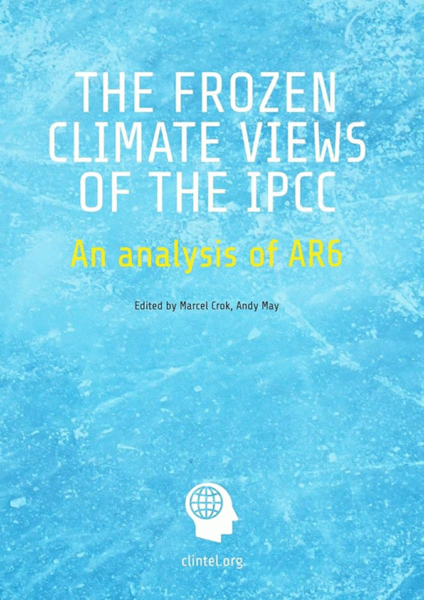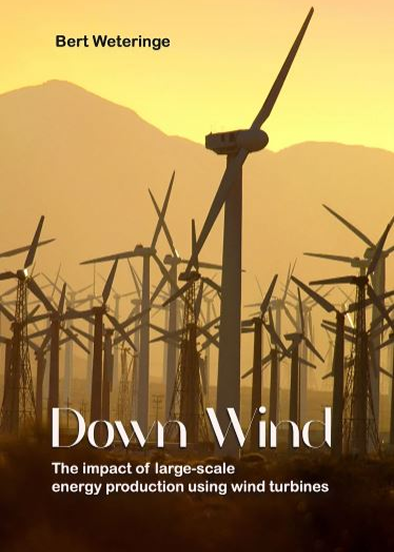Open letter to Bill Gates by Franco Battaglia
Franco Battaglia, wrote an open letter to Bill Gates in response to Gates’s note, “Three solid truths about climate.” In it, Battaglia challenges Gates’s views on climate change and energy policy, offering a contrasting perspective on the role of energy in human prosperity.
November 4th, 2025
Dear Bill Gates,
After carefully reading your letter – «Three solid truths about climate: Here’s what I wish everyone at COP30 to know» – which, it seems, has received wide attention around the world, I decided to write you this one. My decision stems from a very specific reason — your words, which are so important that I will quote them in the original: «From the standpoint of improving lives, using more energy is a good thing».
You should know that I wrote almost exactly those same words 25 years ago (and several times afterward). Back then, while commenting on those who — like you — had been advocating for decades that a sound energy policy must be based on energy efficiency and energy saving, I humbly pointed out that while pursuing energy efficiency is an excellent commitment, pursuing energy saving is a foolish one. For two reasons. First, because saving energy contradicts energy efficiency: the more efficient we become in accessing a resource, the more of that resource we tend to use — and that’s true for energy as well. I won’t go into further detail here; I’ll leave you to think about it. The second reason is precisely the one expressed in your words, which for 25 years I have been writing as follows: «The more energy we use, the better our well-being». In other words, those who tell us to save energy are really asking us to live worse. The most foolish among them used to say: «The first source of energy is saving».
You just turned 70 a few days ago, and I am 71 — so we’re almost the same age, except that you have only now realized things I was already saying 25 years ago. Naturally, I’m not writing this to boast that I was faster than you. No. I’m writing because, reading the rest of your letter, I can see that you still haven’t understood much. And since we live in a world that keeps confusing having with being, I — a nobody — can easily be ignored, while you are important enough to be heard. But the world cannot wait another 70 years for you to understand the rest of what you’ve missed. So, if you have the patience to read on, I’ll point out some of the nonsense you wrote (not all of it — space would not be enough).
It’s true that you wrote: «It’s wrong to believe that in a few decades cataclysmic climate change will decimate civilization, and that nothing matters more than limiting the rise in temperature». But it’s also true that, in the same letter, you basically said the opposite. Let me quote you.
- «Climate change is serious. We need to keep backing the breakthroughs that will help the world reach zero emissions». No, Mr. Gates. Climate change is no more serious than the alternation of day and night, and there’s nothing we can do to stop it. In any case, reaching zero emissions will have no impact on climate change whatsoever. When you say that «innovation will allow us to drive emissions down much further», you don’t give innovation the credit it deserves, since there’s no virtue in reducing CO₂ emissions.
- «Climate change will hurt poor people more than anyone else». That’s poorly phrased. Climate change — which, in any case, is inevitable — could just as well bring improvements. You’re probably confusing climate change with unpleasant weather events, and yes, poor people suffer more. But this holds for any unpleasant event – wars, illness, earthquakes – because poor people have fewer means to cope with them. However, extreme weather events have nothing to do with CO₂ emissions, and pursuing emission reductions — or, worse, pursuing net zero — is a futile exercise that diverts resources from real emergencies. I could list hundreds of examples unrelated to CO₂, but here’s one with global consequences: in 1877, a worldwide climate shift caused by a strong El Niño led to devastating droughts across Brazil, Asia, and Africa, killing over 20 million people from famine.
- «Call me a hypocrite because of my own carbon footprint (which I fully offset with legitimate carbon credits), but I want to be clear: climate change is a very important problem that needs to be solved». Here you feel guilty for your high standard of living — but you shouldn’t. You’re rich, and it’s perfectly natural to use your wealth to maximize your wellbeing. Your comfort doesn’t mean someone else must suffer; and your suffering wouldn’t make anyone else better off. What strange notions you entertain! However, there is some hypocrisy in thinking you can redeem yourself by buying carbon credits. Let’s be clear: you don’t need to redeem yourself from anything — you just think you do. And yet, paying for carbon credits doesn’t ease anyone’s suffering, nor does it improve the climate. That money goes into the pockets of those selling “solutions” to a problem that doesn’t exist — and that, in any case, are not solutions. No poor person benefits from your carbon credits.
- «Every tenth of a degree of heating that we prevent is hugely beneficial because a stable climate makes it easier to improve people’s lives». Surely, Mr. Gates, you can’t believe this quadruple nonsense. First, tenths of a degree have no relevance to climate stability. Second, why lives would be improved by preventing tenths of a degree of heating and not by preventing tenths of a degree of cooling? Third, how could a difference of tenths of a degree make the climate “more stable”? And fourth, what does “stable” even mean? For the planet, a series of sunny days is no more “stable” than a series of storms. “Good” and “bad” weather are merely human labels for planetary dynamics that don’t care about us.
- «In short, climate change, disease, and poverty are all major problems». Again, no. Mixing two truths with one falsehood to make the falsehood sound true is childish. Climate change is not a problem — it’s an unavoidable fact of the planet, like earthquakes. The difference is that earthquakes are bad for us, while climate change can even be beneficial. If by “climate change” you mean “unpleasant weather events,” then yes — we must protect ourselves from them, just as we do from earthquakes. But trying to alter the global temperature by a few tenths of a degree will not change those events, and cutting CO₂ will not change the temperature. Put it this way: if humanity disappeared from the Earth tomorrow, do you really think there would be no more typhoons, hurricanes, droughts, or floods?
- «Ten years ago, the International Energy Agency predicted that by 2040 the world would emit 50 billion tons of carbon dioxide every year. Now, the IEA’s forecast has dropped to 30 billion. Read that again: we’ve cut projected emissions by more than 40%». Mr. Gates, do you realize what you’re celebrating? You’re cheering that forecasts have improved! Either you’re being naïve, or I don’t know what to think. Not the forecast but the hard truth is that despite all promises to reduce emissions, they’ve actually increased — and today they’re 60% higher than in 1990. I do celebrate that reality — but I have no idea what exactly you’re celebrating.
- «To get net zero will become even more important if new evidence shows that climate change will be much worse than what current models predicts, because we’ll need to accelerate the transition to a zero-emission economy». Oh dear, Bill — you are finally saying the truth out loud. This is exactly what many of us have suspected for 30 years: that the real goal of this entire narrative is to impose the “energy transition,” using climate change as the excuse. The worse the climate sounds, the easier it is to sell the transition.
In the rest of your letter, you indulge heavily in wishful thinking — talking about nuclear fusion plants, zero-emission steel and cement, geologic hydrogen, carbon capture and storage — all supposedly lowcost. But none of these things exist, not even at high cost.
You do seem sincere, because you recognize that prosperity reduces the risk of dying. But you phrase it wrongly. You say: «The number of projected deaths from climate change falls by more than 50% when one accounts for the expected economic growth of low-income countries». No — economic growth reduces the number of projected deaths. Period. It is improper to specify “from climate change”.
Eventually, we are back to the starting point: prosperity comes from energy that is abundant, reliable, and affordable — exactly the opposite of what your energy transition promises.
I did, however, appreciate the closing message of your letter to COP30: «Prioritize on the things that have the greatest impact on human welfare. It is the best way to ensure that everyone gets a chance to live a healthy and productive life, no matter what kind of climate they’re born into». Exactly: Let’s stop talking about climate.
Sincerely,
Franco Battaglia

Franco Battaglia
Franco Battaglia is Professor of Physical Chemistry and has signed the World Climate Declaration “There is no climate emergency”. His open letter was previously published in La Verita.
more news
Right, New York Times, Scientists Do Disagree on The Polar Vortex
A recent New York Times article explores claims that climate change may be worsening winter cold extremes. While some scientists argue that Arctic warming destabilizes the polar vortex, long-term data show a clear decline in extreme cold events, challenging that narrative.
The Endangerment Finding Was Pre-Cooked
In this analysis, Dr. Matthew Wielicki examines the EPA’s 2009 Endangerment Finding, contending that the ruling was effectively decided in advance and later justified through a structured scientific review, with far-reaching consequences for climate regulation.
Why Climate Science Is Not Settled
Claims that climate science is “settled” are frequently used to justify far-reaching policy decisions. In this article, Vijay Jayaraj examines how model uncertainties, conflicting evidence and real-world observations challenge the idea of certainty in the climate debate.






